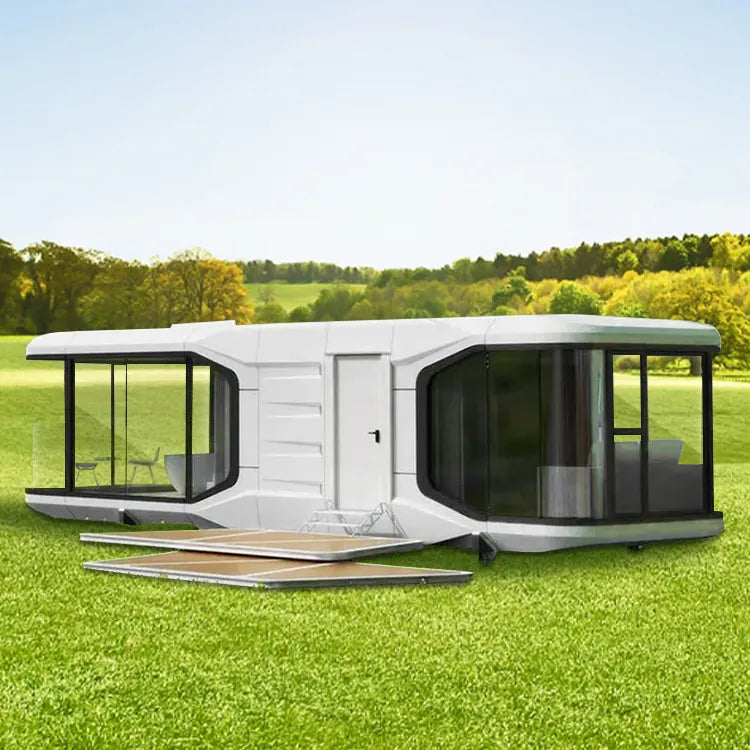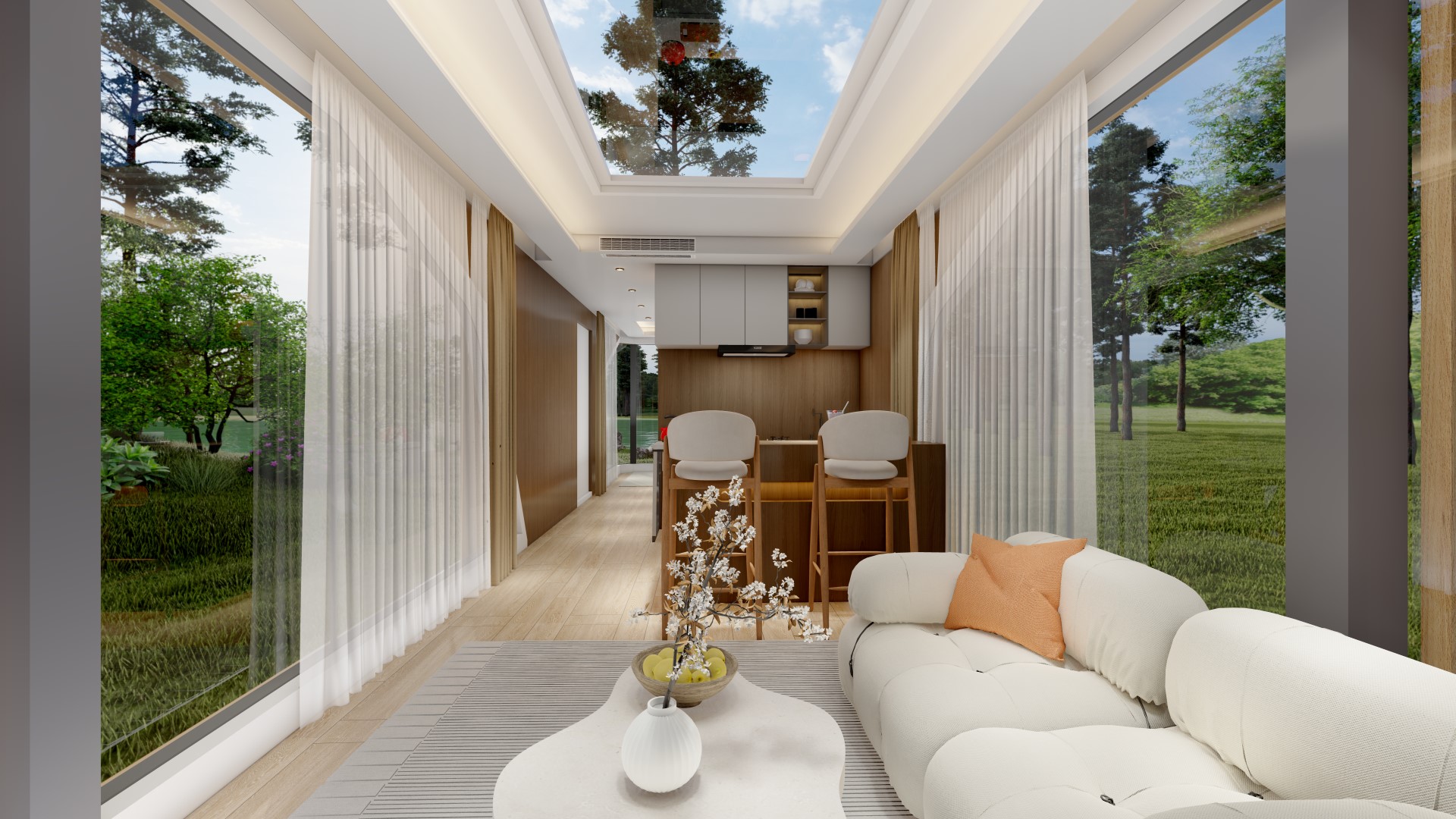Why Modular Houses Are the Future of Lasting Living
Modular homes are increasingly identified as a crucial solution for lasting living, supplying a blend of performance, cost-effectiveness, and environmental benefits. Their building in controlled atmospheres significantly minimizes waste and enhances accuracy, while the capacity for integrating sophisticated energy-efficient systems positions them as a forward-thinking option in housing. The flexibility of modular styles permits for the combination of sustainable innovations and products customized to specific requirements. As we navigate the obstacles of urbanization and ecological sustainability, one should take into consideration how these homes might redefine our technique to living rooms.
Ecological Benefits of Modular Homes
The environmental benefits of modular homes stand for a substantial action towards sustainable living. These homes are created in controlled factory settings, which considerably decreases waste produced during the building procedure. By maximizing materials and reducing excess, modular building adds to a much more reliable use of resources contrasted to conventional building methods.
Furthermore, modular homes are commonly made with energy efficiency in mind. Several include innovative insulation techniques, energy-efficient windows, and lasting materials, adding to lower energy consumption. This can result in lowered greenhouse gas discharges over the lifespan of the home, boosting its overall ecological profile.
The capability to transport and set up modular elements on-site also decreases the carbon footprint connected with building and construction logistics. Furthermore, numerous modular homes are constructed to be versatile and quickly upgradeable, enabling home owners to execute sustainable technologies, such as solar panels and energy-efficient furnace, in time.
Inevitably, the ecological advantages of modular homes not just promote lasting living but additionally urge an even more accountable technique to housing advancement, aligning with worldwide efforts to combat environment adjustment and maintain natural deposits for future generations.
Cost-Effectiveness and Price
Structure a home usually represents one of the largest monetary investments individuals make in their lifetime, and modular homes use a compelling option for those seeking cost-effectiveness and affordability. One of the main benefits of modular homes is their lower building expenses contrasted to traditional site-built homes. The structured production process enables substantial savings on labor and materials, which equates to lower rates for customers.
Furthermore, modular homes commonly have shorter building timelines. This not only minimizes expenditures connected to funding and insurance coverage but likewise alleviates the threats associated with inflation and fluctuating market conditions. Numerous purchasers locate that modular homes can be personalized to fit their budgets without giving up quality or design.
Additionally, energy efficiency is often developed right into the style of modular homes, leading to reduced energy costs over time. Several suppliers prioritize lasting products and methods, additionally enhancing the lasting monetary stability of these homes. Generally, the combination of preliminary price savings, fast building and construction, and continuous power efficiency makes modular homes an eye-catching alternative for those aiming to spend in lasting living without damaging the financial institution.
Effectiveness in Construction
Modular homes not just provide economic benefits yet additionally excel in building performance. The modular building procedure entails the simultaneous building of components in a factory setting while site preparation happens concurrently. This identical technique substantially lowers the total timeline from fertilization to conclusion, commonly cutting construction time by as much as half compared to traditional approaches.
In addition, factory-controlled atmospheres improve quality control. By making use of accuracy manufacturing techniques, modular homes are constructed to precise specifications, lessening waste and errors. This consistency not just brings about a better product yet additionally contributes to sustainable practices by decreasing product waste during building and construction.
Additionally, making use of contemporary innovation and automation in the production procedure enables quicker assembly and decreased labor prices. As soon as the modules are transported to the website, they can be efficiently assembled, even more quickening the timeline. This streamlined process is not just helpful for building contractors yet likewise minimizes interruptions to the surrounding setting during construction.
Customization and Layout Adaptability
A remarkable selection of personalization choices identifies modular homes, permitting homeowners to customize their home to meet particular needs and preferences. This layout flexibility is pop over to these guys a hallmark of modular construction, allowing customers to pick every little thing from flooring strategies and room layouts to surfaces and fixtures. Unlike standard homes, modular styles assist in a joint strategy where builders and designers function closely with property owners, making sure that each element lines up with visual wishes and specific lifestyles.
Furthermore, modular homes can be quickly reconfigured or broadened, suiting changing family dynamics or developing individual preferences. This adaptability not only enhances the home's capability however additionally adds to lasting sustainability, as home owners can customize their areas as opposed to seek brand-new housing services.

Future Fads in Sustainable Real Estate
Arising trends in lasting real estate are improving the landscape of residential building, highlighting environment-friendly techniques and innovative modern technologies. One considerable fad is the assimilation of smart home innovation, which boosts energy click here now effectiveness through automated systems that enhance and keep an eye on power usage. This not only minimizes utility costs yet likewise adds to a reduced carbon footprint.
Additionally, making use of sustainable materials is coming to be increasingly typical. Contractors are going with recycled, in your area sourced, or swiftly eco-friendly products, which minimize environmental influence and assistance regional economic situations. Moreover, modular homes are getting appeal for their lowered waste during building and their versatility to various terrains and climates.
One more fad is the unification of green roofings and living wall surfaces, which improve air high quality and offer all-natural insulation. These features also promote biodiversity in metropolitan locations.
Verdict
In verdict, modular homes arise as an essential option for lasting living, using considerable environmental benefits with minimized waste and energy efficiency. As trends in lasting real estate develop, modular homes are positioned to play a critical function in advertising green living methods for future generations.
Structure a home often represents one of the largest financial investments people make in their life time, and modular homes use an engaging solution for those looking for cost-effectiveness and price. One of the main benefits of modular homes is their reduced construction prices contrasted to conventional site-built homes. Overall, the combination of first expense financial savings, imp source rapid building and construction, and ongoing power effectiveness makes modular homes an attractive choice for those looking to spend in sustainable living without breaking the bank.
Ultimately, the modification and design flexibility offered by modular homes make sure that they are not simply structures, however customized sanctuaries that mirror the distinct identifications of their residents while promoting sustainable living practices.
